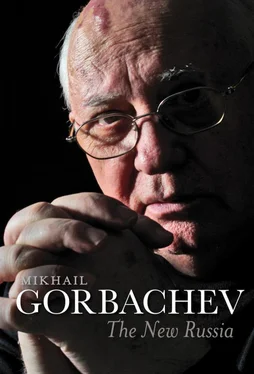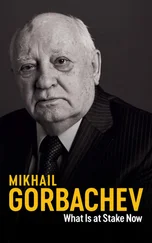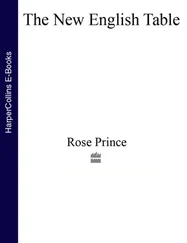Next, under the pretext of a meeting of representatives of Hero Cities of World War II, a whole gaggle of Party bosses of different levels decided to discuss the ‘unresolved problem’ of how to topple Gorbachev. In the summer of 1991, as I was meeting with leaders of the Soviet republics to finalize a draft new Union Treaty, three hardline ministers in charge of security and law-enforcement put a proposal to the USSR Supreme Soviet to reassign powers from the president to the prime minister and security ministries. Never a day passed without the warbling of ‘anti-Perestroika nightingales’ like Alexander Prokhanov.
To this day, insane rumours are spread, hoaxes manufactured for release onto the Internet, and ‘documentaries’ shown on TV which are a pack of lies and malign invention from start to finish.
From the Gorbachev Foundation website:
In late August 2008 an interview appeared in Komsomolskaya Pravda [ Young Communist League Pravda ] in which Pavel Borodin, who holds high office in the Union State of Russia and Belarus, made blatantly libellous allegations against M. S. Gorbachev and Helmut Kohl, former Chancellor of the Federal Republic of Germany.
After contacting Helmut Kohl, M. S. Gorbachev has received confirmation from him that Borodin’s allegations were ‘a complete fabrication’. The Gorbachev Foundation contacted its lawyers, who took necessary action, and Komsomolskaya Pravda has published the following:
Retraction
In Issue No. 127 (24154) of Komsomolskaya Pravda , dated 29 August 2008, and on the Internet at URL http://www.kp.ru/daily/24154/369892, an interview with P. P. Borodin, Secretary of State of the Union State of Russia and Belarus, was published under the title ‘Pavel Borodin: “If South Ossetia and Abkhazia join the Union of Russia and Belarus, I too will down three litres of wine.”’ P. P. Borodin alleged that the former Chancellor of the Federal Republic of Germany, Helmut Kohl, had told him that ‘for Eastern Europe’ Mikhail Gorbachev asked for $100 million ‘for his own foundation, 100 million for Shevardnadze’s fund, and 100 million for the fund of another comrade’.
This information, as well as the claim that it was communicated to P. P. Borodin by Helmut Kohl, is at variance with the truth. Its intention was to impugn the integrity and reputation of M. S. Gorbachev.
Komsomolskaya Pravda , 28 January 2009
The authorities of the Russian state find me a hindrance. Today’s political elite have set their sights on consolidating their right to govern in perpetuity, giving them material wealth and power without accountability. The media subservient to them defame Perestroika, vilifying those who undertook the huge and perilous task of bringing reform and elections to a country weighed down by problems that had not been addressed for decades.
Freedom of speech can be, and is, used not only by people who seek and want to report the truth, but by others who are ill-intentioned and whose consciences are unclean.
To this day I am stunned by the treachery of people I placed in positions of trust, with whom I was bound by years of joint endeavour. The most striking instance of that was the coup by the ‘State Emergency Committee’ that paved the way for the destruction of the Soviet Union.
By August 1991, after months of severe crises in the USSR, a plan had been devised and agreed by all parties, including the Baltic republics. We had completed work on a new Union Treaty, which was to be signed by the leaders of the republics on 20 August. In the autumn, an extraordinary congress was to move the Communist Party in the direction of reform and social democracy. We anticipated difficulties in the future, but I have no doubt that, but for the coup, the subsequent orgy of destruction could have been avoided.
Democracy is a hard taskmaster, and the free elections to the Congress of People’s Deputies in 1989 produced unexpected results. On the one hand, 84 per cent of those elected were members of the Communist Party of the Soviet Union (CPSU), but, on the other, the voters withheld their trust from dozens of Party officials, who found themselves out on their ear. The reactionaries in the Party establishment initiated a campaign of furious resistance to Perestroika. Unable to achieve their goals in an open political fight, my opponents resorted to a coup d’état.
Their putsch failed, but gave the green light to separatists, radicals and extremists, with a string of disastrous consequences. The collapse of the Soviet Union; the rolling back of democracy in almost all the republics; chaos in the economy, exploited by the greediest and most unscrupulous, who succeeded in plunging almost everyone else into poverty; ethnic conflicts and bloodshed in Russia and other republics; and, finally, the shelling of the Supreme Soviet of Russia in October 1993.
People often ask me if I feel all this was my fault. They say that in late 1991, after the Belovezha collusion between Yeltsin and the leaders of Belarus and Ukraine to undermine the USSR and replace it with a ‘Commonwealth of Independent States’, I should have acted more decisively. My answer is that I fought for a Union State until the last, but it would have been unforgivable to allow a slide into civil conflict, and possibly civil war. We can imagine what that could have meant in a country bristling with weapons, not only conventional but also nuclear. That is why, after long deliberation, I took the decision that I still believe today was the only right one in the circumstances: I announced that I would cease to perform the duties of president of the USSR.
To the Citizens of the Soviet Union
A Broadcast by the President of the USSR, M. S. Gorbachev
25 December 1991
Dear fellow countrymen and fellow citizens,
In view of the situation that has developed with the formation of the Commonwealth of Independent States, I am terminating my work as president of the USSR. I am taking this decision for reasons of principle.
I have strongly supported the autonomy and independence of our peoples and the sovereignty of their republics, but also retention of the Union State and integrity of our country. Events have taken a different course. A policy of dismembering the country and disuniting the state has prevailed, which I cannot accept.
After the Alma-Ata meeting and the decisions taken there, my principles remain unaltered.
I am convinced that a decision of this magnitude should have been based on an expression of the will of the Soviet people. Nevertheless, I will do everything in my power to ensure that the agreements signed there bring about genuine harmony in society and facilitate the finding of a way out of the crisis and continuation of the reform process.
Addressing you now for the last time as president of the USSR, I consider it incumbent upon me to give an assessment of the path we have taken since 1985. This is all the more necessary in view of the many contradictory, superficial and biased judgements that have been heard.
Fate decreed that by the time I found myself in charge of the state it was already clear that something was wrong with our country. In terms of land, oil, gas and other natural resources, we had so much wealth, and no cause to complain as far as intelligence and talent were concerned, and yet our standard of living was far below that of developed countries and we were in the process of falling further behind.
The cause was already clear: society was suffocating in the clutches of a bureaucratic command system. Doomed to serve ideology while bearing the terrible burden of the arms race, it was close to breaking point.
All attempts at piecemeal reform, of which there were many, failed one after the other. The country was heading nowhere. It was impossible to go on like that. Everything was in need of radical change.
Читать дальше












